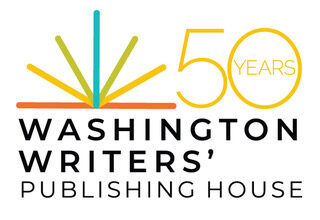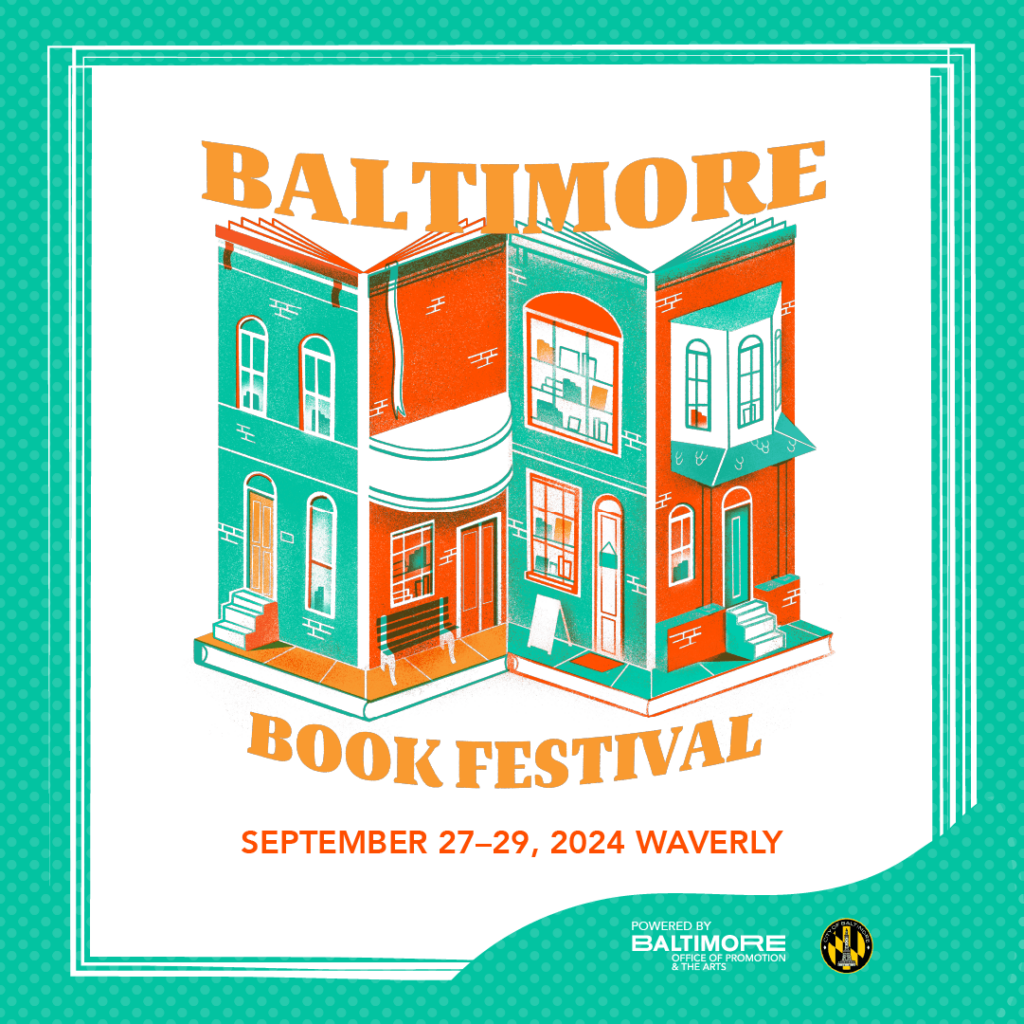

WWPH Writes 82…loves raindrops, Poe (and not the one you might expect), our 2024 award-winning books, which are officially on sale on October 8th, and so much more.
Join us as we celebrate the launch of our 2024 award-winning books: For the Blessings of Jupiter and Venus by Varun Gauri; UNARMED: An American Educator’s Memoir by Megan Doney; and The Machine Autocorrects Code to I by Chanlee Luu at Politics & Prose Bookstore (main store on Connecticut Avenue) on Sunday, October 13 at 5 pm and at the Writer’s Center in Bethesda on Sunday, October 27th at 3 pm. The Writer’s Center event includes a wine and cheese reception, so please let us know you are coming with an RSVP here! At both events, our editors will also be on hand to answer questions about how you can be published with the Washington Writers’ Publishing House and how you can apply for a paid WWPH Fellowship for 2025. Applications for our 2025 WWPH Fellowship program open on October 1.
Speaking of being published, our 50th-anniversary anthology, AMERICA’S FUTURE, is now open for submissions. We invite you to send us your work now. More details below. If you are in Baltimore, we will be at the Baltimore Book Festival this weekend, Saturday, September 27 and Sunday, September 28th. Stop by and say hello (and buy a few award-winning WWPH books). Lastly, read on to the end for two special bonus TINY ODES from Charlottesville writer Andie Brynn Weaver.
Caroline Bock & Jona Colson
co-presidents and co-editors Washington Writers’ Publishing House
WWPH WRITES Poetry
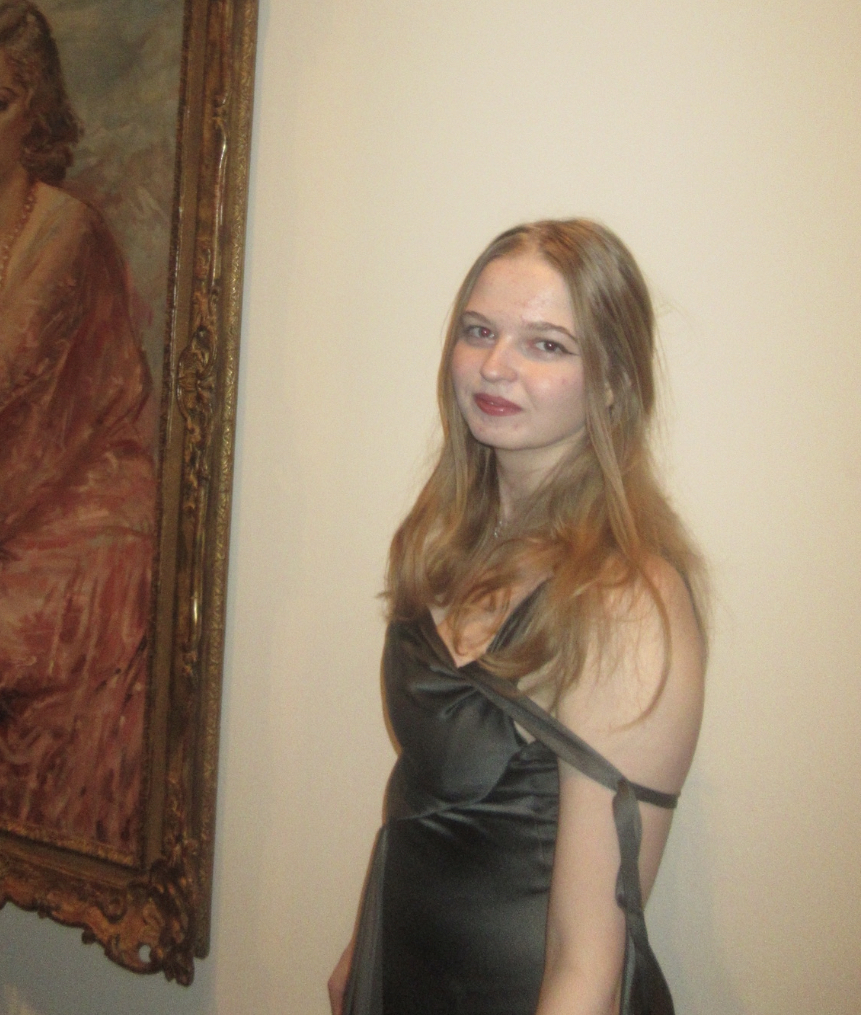
Anhai Roantree is an undergraduate student at George Washington University studying Creative Writing & English. She was born and raised in San Francisco and now lives in Washington, D.C. She loves to read, write, and force people to look at pictures of her dog, who she talks about constantly. You can find more of her work on Instagram @_poetree__
Raindrops
I love raindrops and I
eat them up
one by one then two and three
I devour them all, you see.
I dance and dance, then scream and dance
and scream because I
hate that I am caught out here,
surrounded by that which I love
and that which I have eaten all up.
©Anhai Roantree 2024
WWPH WRITES Fiction
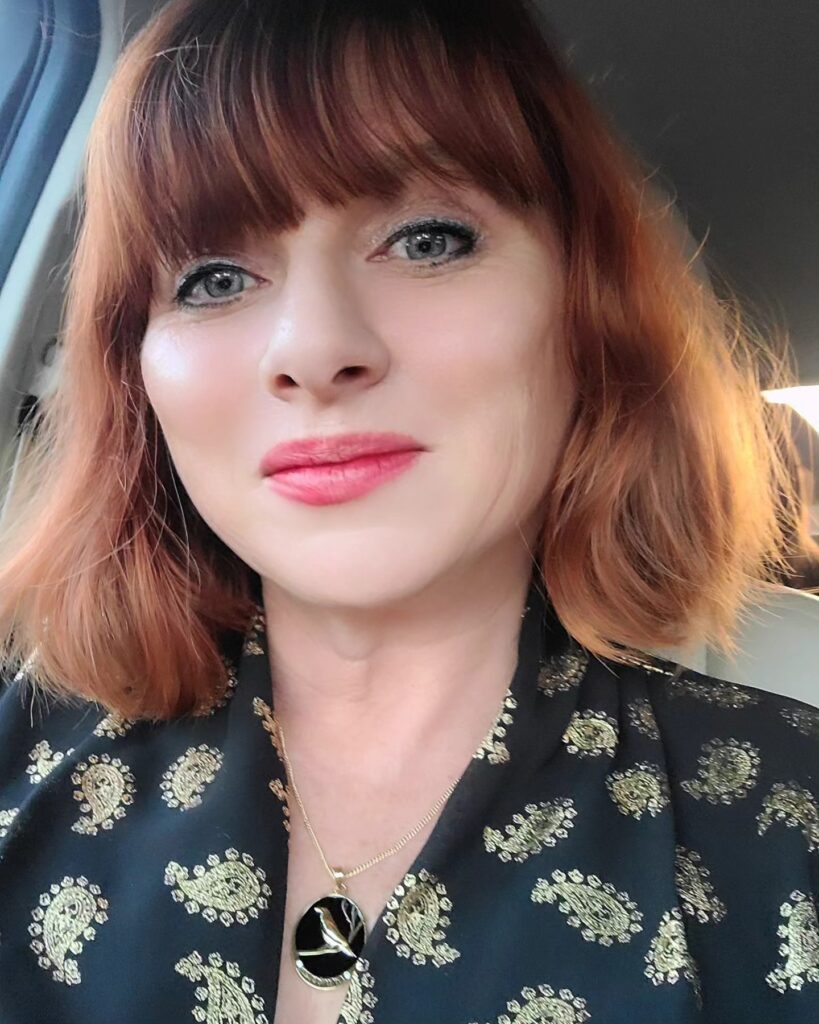
Jennifer Christiansen, a school librarian in Virginia, is a multiple award-winning writer. The Mother He Knew Knew is part of her historical fiction collection highlighting E. A. Poe’s tragic love life as seen through the women’s eyes. An animal lover, Jennifer also volunteers with the Humane Society of the United States. A link to Poe’s poem, To My Mother, which, in part, inspired her, can be found here.
Elizabeth Arnold Poe
The Mother He Never Knew
The stage was where I yearned to be. Singing and speaking to ears that hung on every word. Standing in front of a multitude of eyes. Different shapes and colors, all hungry for the story my character would tell. Oh! And that moment of silence at the resolution, absorbing and thoughtful, before each pair of hands would erupt in thunderous applause.
That sort of scene intimidated some, as time told, but I lived for it.
I played over seventy roles by the time I was just fifteen years of age. Of my favorite characters, Ophelia stood out. How those tragic Shakespearean souls haunted me!
“And will he not come again?
And will he not come again?
No, no, he is dead;
Go to thy deathbed;
He never will come again.”
In the theater, Ophelia living and dying inside me. And not a dry eye to be found as she drowned. Poor Ophelia did nothing wrong, but so many wrongs were dealt to her.
Ophelia, and other well-known characters of tragedy, like Juliet and Desdemona, found early death in their love of a man. You would think I would have learned from them, would you not?
But, sadly, no! At least not enough to avoid becoming victim to one man’s careless desires and actions.
I captivated David Poe from the stage.
I remember the first time I met David like it were mere moments ago. It was after my performance as Ophelia, a role that always seemed to consume me entirely. The theater bustled with energy, but my mind was still wrapped in the tragedy of character.
“You were captivating,” a voice said behind me, pulling me out of my reverie. I turned to see a man with dark eyes and a charming grin.
“Thank you,” I replied, offering a polite smile of my own. I had, of course, seen many admirers come and go, but there was something unusual about him. An emptiness I mistook for depth.
“I couldn’t help but notice your performance,” he continued, stepping closer. “It was…mesmerizing.”
I felt a flush rise to my cheeks. “You flatter me, sir.”
“David Poe,” he said, extending a hand.
“Elizabeth Arnold,” I replied, shaking his hand. “Eliza is how I am known.”
Little did I know this encounter would change the course of my life forever.
Like the North Star, mesmerized by my luminosity, he joined my acting troupe. Better it would have been if he had continued with his law aspirations, although that too may have unveiled his intrinsic aversion to public speaking. Stage fright, or what have you, led to bad reviews and ridicule. My star shone, while his died before ever sparking, perhaps cracking that fragile shell of manly pride.
With the birth of my dear sons, William and Edgar, money became tight and added more pressure to our lives, already simmering intense waters. While I rose to chief singing actress, David sunk to the bottom of a whiskey bottle of oblivion. As much as I tried to hide the reviews that mocked and criticized, he managed to discover them. Often, his temper was taken out on me and the children. He, hardly the man I once imagined him to be, soon abandoned both his family and the stage. Although that was no great surprise, the arrival of our daughter Rosalie was. And the deteriorating illness that followed, as I labored on, was an absolute astonishment.
That stage, my true home, became stained with the blood I could not stop coughing up. I pressed on alone, caring for my children for as long as I could. But even with my perseverance and the kindness of strangers, I died in that boarding house room with my three infant children surrounding me. Their faces, so sweet and sad, plague me still. David got his due justice shortly thereafter. Then, the children, the dear children, were the ones who had to tolerate a life without parents.
Edgar, my orphaned Edgar, in particular, suffered greatly. He held on to that little watercolor of Boston Harbor that I inscribed to him. He held it close to his heart.
“For my little son Edgar, who should ever love Boston, the place of his birth, and where his mother found her best and most sympathetic friends.”
I continue in the memories of those who witnessed my stage performances. And I live on in the echoing caverns of Edgar’s works. But his want of parental affection, the heaviest of his trials, is much of my legacy.
Edgar, such a talent, but without an actual recollection of his true mother.
Who really knew me, this stranger, at all?
©Jennifer Christiansen 2024
WWPH WRITES on our 2024 AWARD-WINNING BOOKS
WWPH TOP FIVE INTERVIEW WITH OUR 2024 Nonfiction Prize-winner MEGAN DONEY here.
Pre-order UNARMED: AN AMERICAN EDUCATOR’S MEMOIR by Megan Doney everywhere books are sold. Here are a few options:
Bookshop.org Amazon.com Politics and Prose
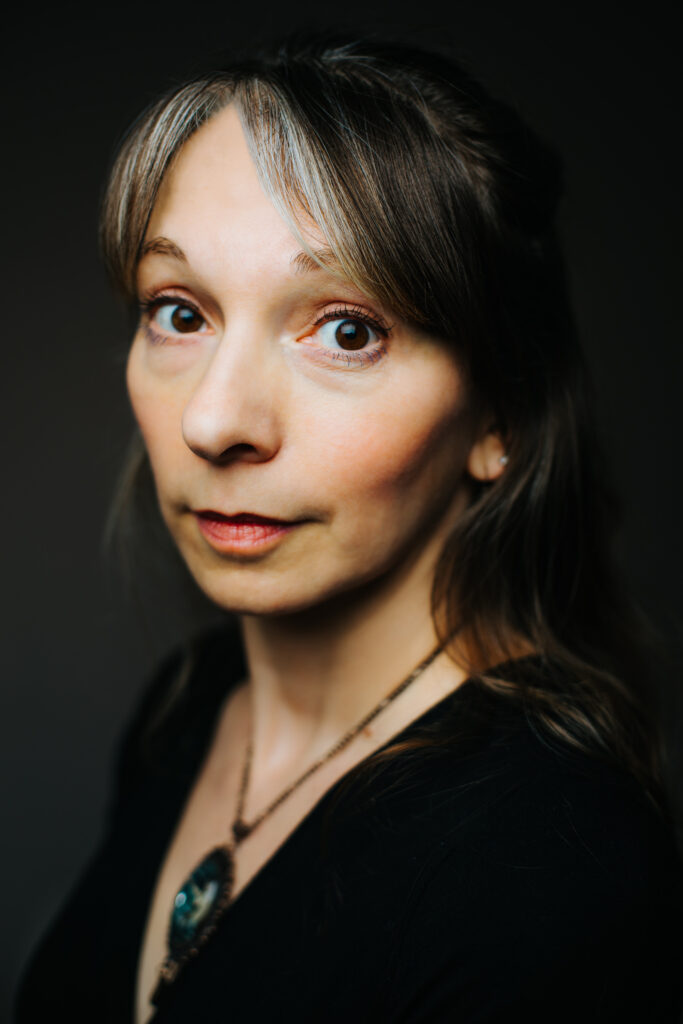
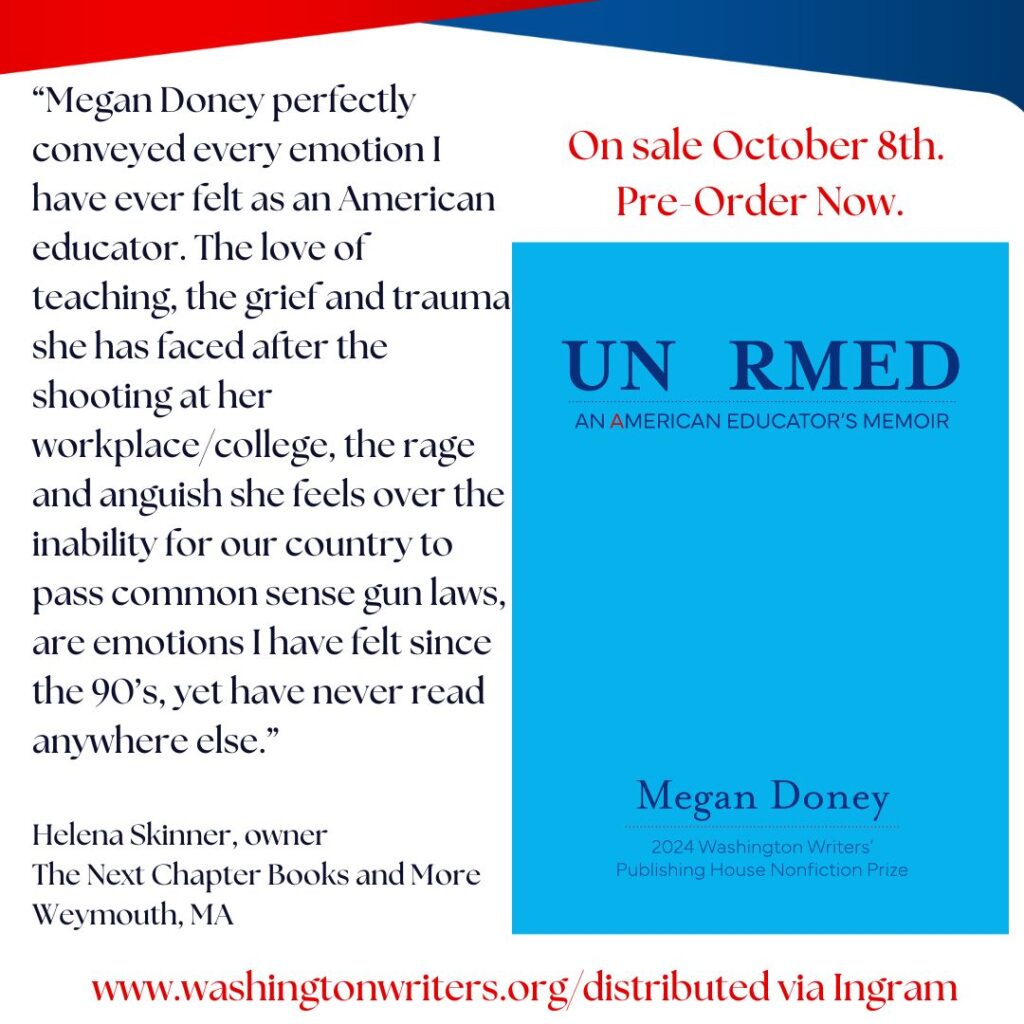
WWPH NEWS
JOIN US in Philadelphia as we celebrate the one-year publication anniversary of TRANSPLANT: A MEMOIR by Bernardine ‘Dine’ Watson. OPEN TO ALL!
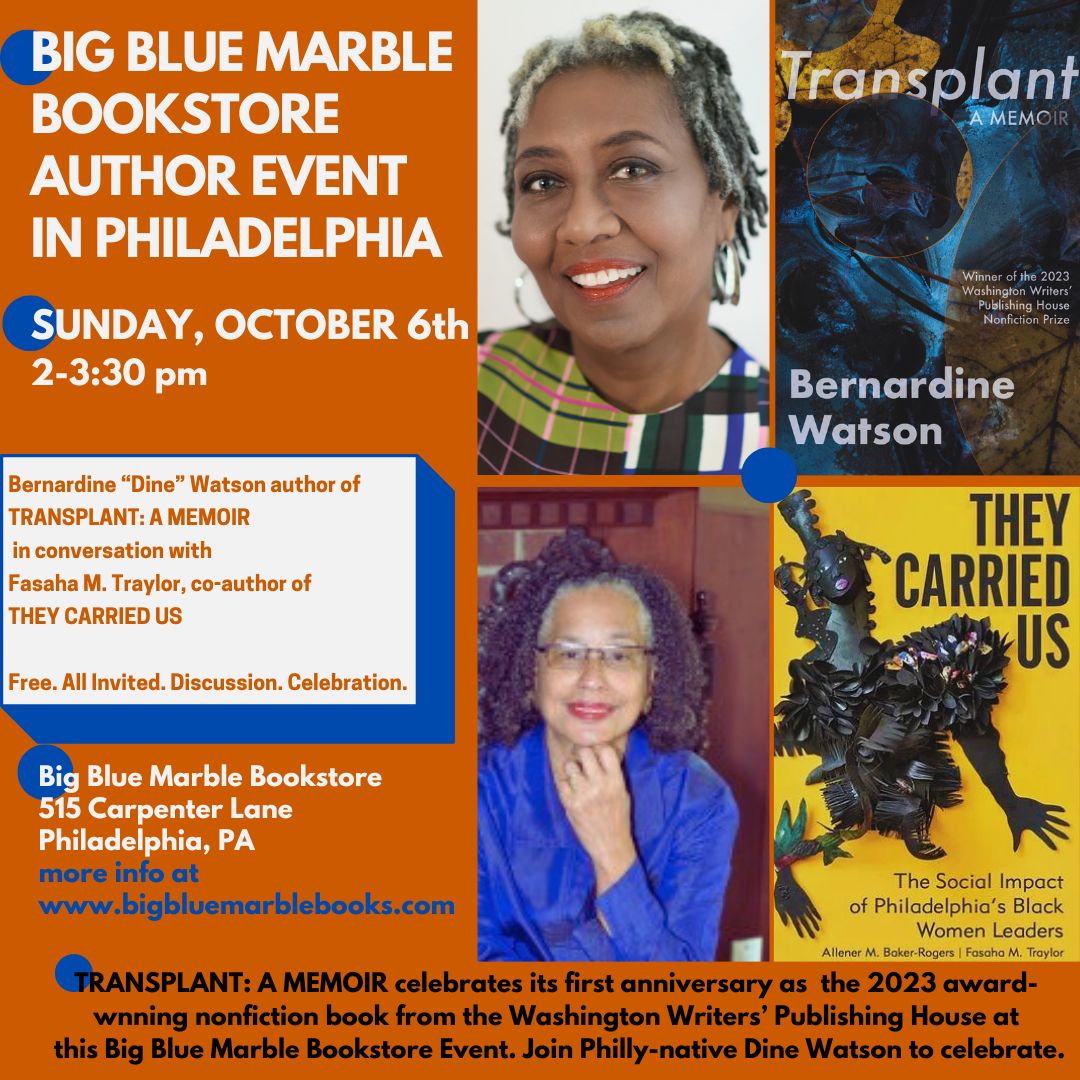
Submit your poetry, fiction, and creative nonfiction to AMERICA’S FUTURE. Detailed prompts and guidelines are available here. WE ARE NOT GOING BACK. FUTURE FORWARD, all…submit now. We are reading on a rolling basis all submissions.
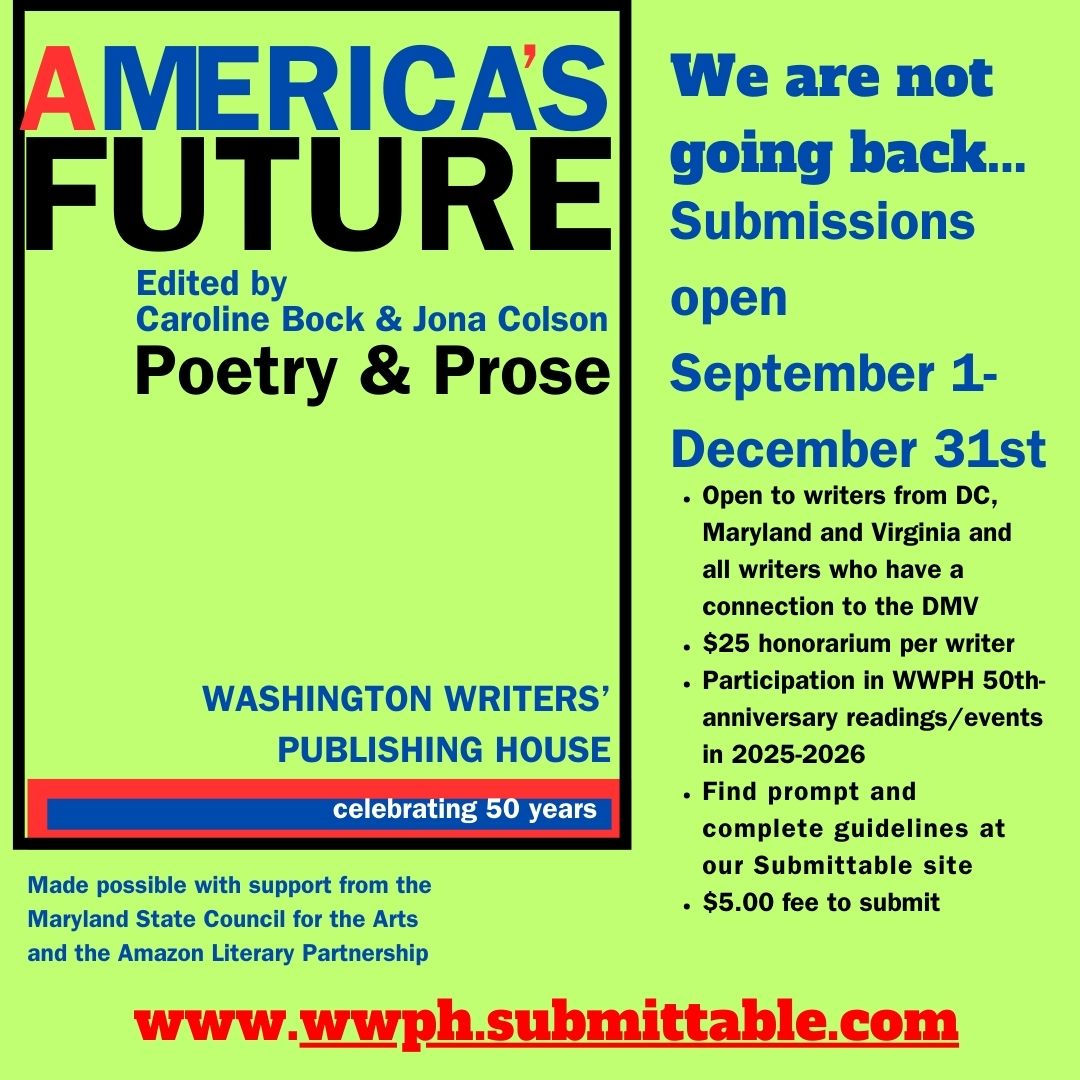
JOIN US on Sunday, October 13 at 5 p at the iconic POLITICS & PROSE BOOKSTORE for the premier reading/event for our 2024 award-winning books…
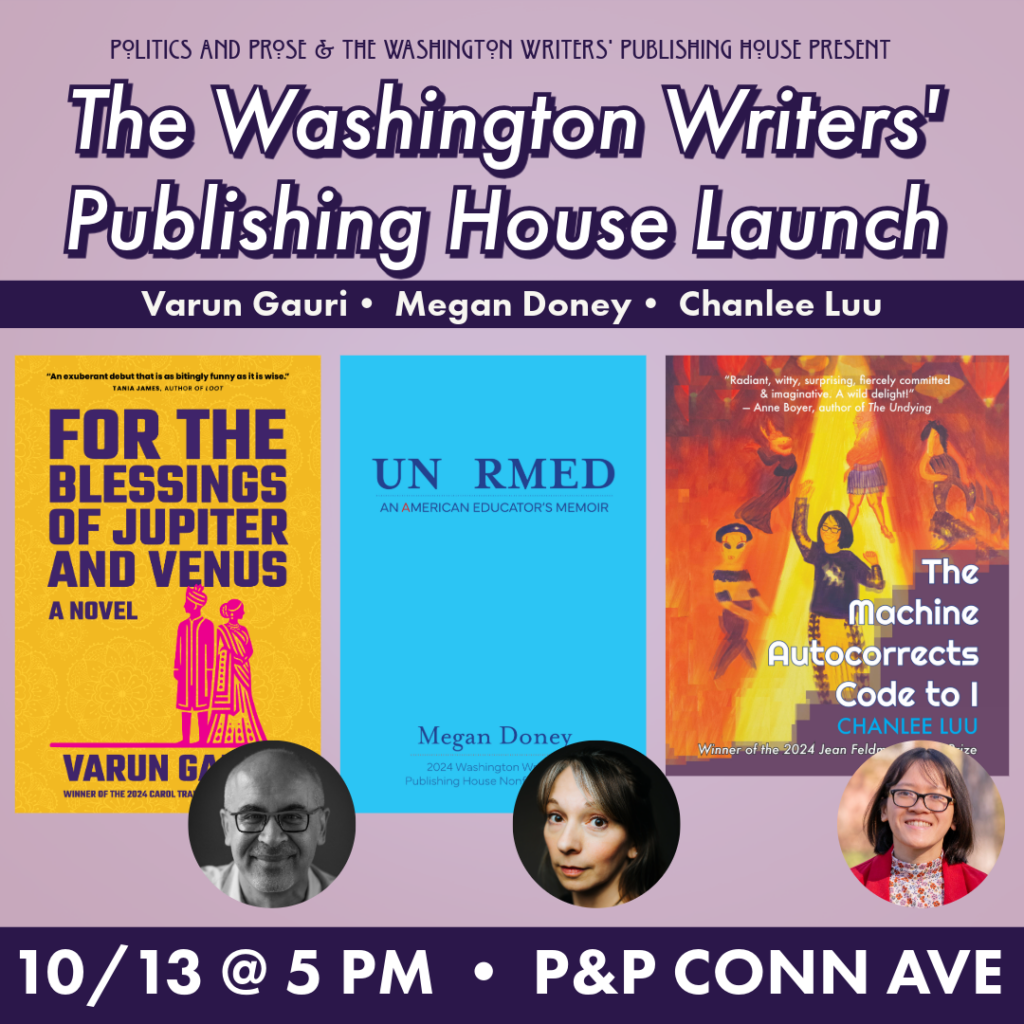
A SPECIAL ONE-YEAR ANNIVERSARY EBOOK SALE! Available everywhere books/ebooks are sold.
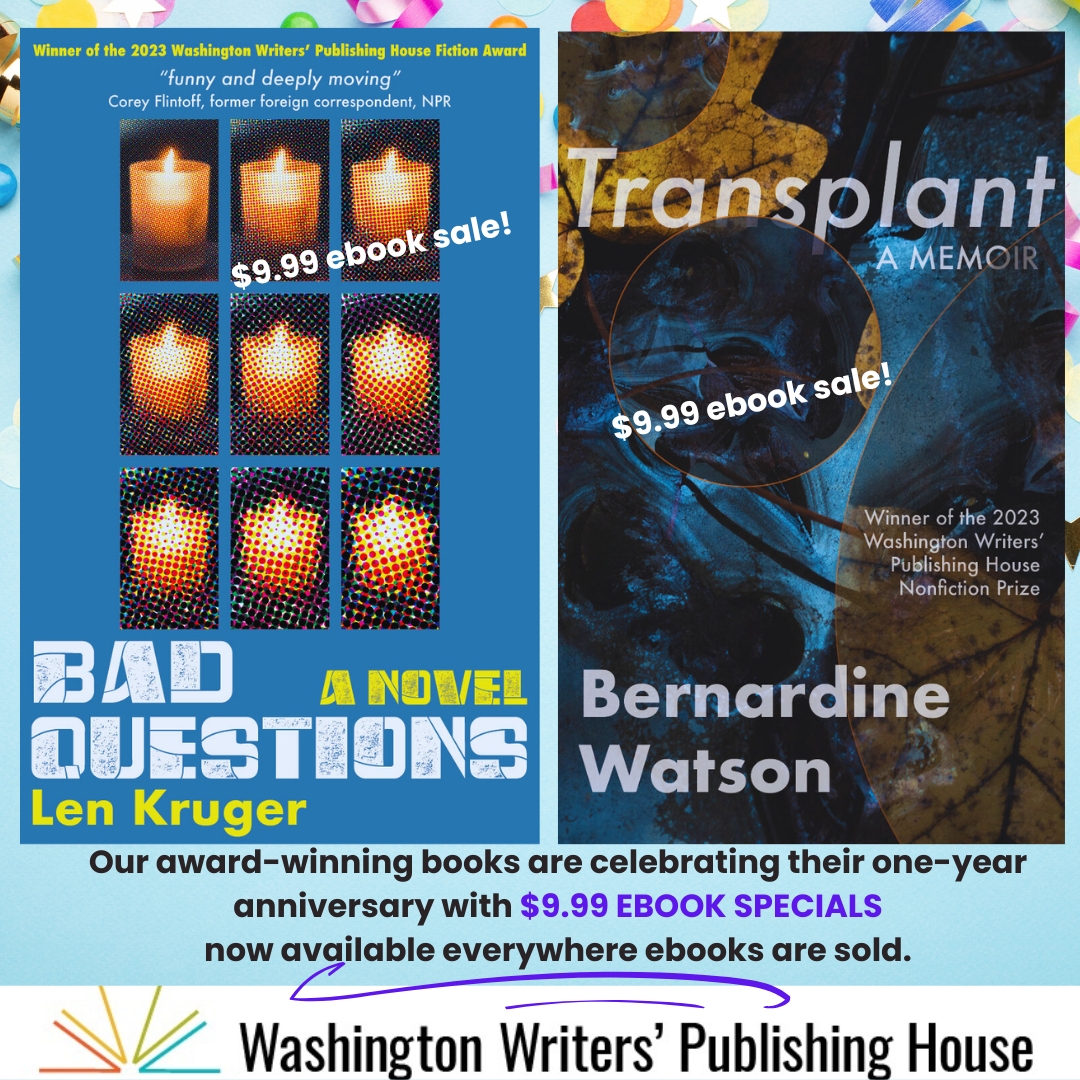
Your Washington Writers’ Publishing House is at the Baltimore Book Festival this weekend. Stop by our table on 31st Street!
WWPH WRITES: Bonus TINY ODES
We are going to end this WWPH Writes issue on two Tiny Odes…if you missed our TINY ODE special issues in August go to WWPH Writes 79 and WWPH Writes 80…
ode to decay
you’re the pressed
leaf the vivid fuzz the motes
in beams of sun the body now
a garden now a bedroom now
a clock striking even
in your rot
ode to my partner pointing out a goldfinch for the first time
indifferent to birds, he urges
so I look: clap of yellow, polished
bolt into the trees, feeder
still dancing off the hook.
Andie Brynn Weaver is a queer writer living in Charlottesville, VA. Their work can be found in The Rumen, new words {press}, and elsewhere.
Thank you all for being part of the WWPH community!
